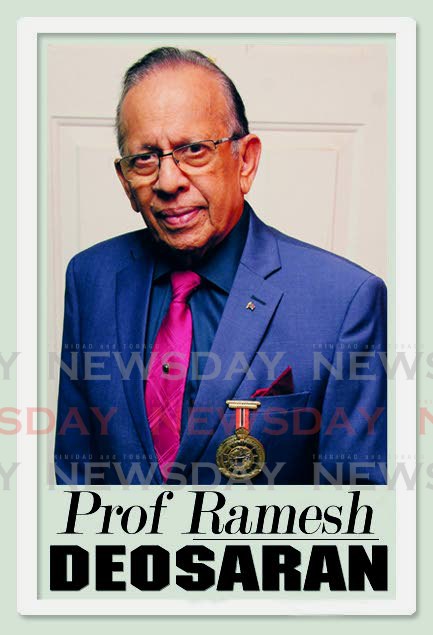Seven rules for democracy

At this Easter time, as churches around this country and the world preach about honesty, contrition, resurrection and the courage to change things, we are left to wonder not only about the devilish war in Ukraine, the many who enjoy prosperity through corruption, but how much more should we pray for a better, safer world?
Notably, corrupt governments and politicians are largely responsible for much of the world’s problems – by lack of good example, political integrity, the fair and equitable treatment of citizens, lack of financial accountability, excessive arrogance and vanity, etc. People now follow the examples. Civic relationships between democratic governments and their citizens have collapsed. Here, Archbishop Jason Gordon repeatedly speaks about the absence of respect, tolerance, discipline even political corruption. Jesus not only spoke about corruption but in his time, he courageously pointed out ‘who was who” and paid for it. The cost of critical thinking.
I was reminded of all this when I read Fr Martin Sirju’s sermon last Thursday. He said: “Trinidad and Tobago is a cruel society– high levels of domestic abuse, failure to educate the large masses of young men turning to crime, prejudice based on race and class, a justice system that does not work, the veneer of religious respectability, not to mention the wastage of billions in oil-gas revenue due to mismanagement.”
He ended: “I hope this Holy Week we will remember not only our personal sins but our systemic ones.”
This is a holy time to resurrect some systemic fundamentals about what a democratic government is all about. And then we can judge how near or far from these seven selected standards our government is:
(1) The government is established by politicians who are elected freely and fairly by citizens with such elections managed through an independent, highly reputable institution.
(2) The government, as representative as it presumes to be, is constitutionally duty-bound to serve, first of all, the basic needs of the population (eg water, light, roads, etc) as well as general welfare needs such as education, health, public safety.
(3) In order to fulfil such a mission the government is required to collect taxes from citizens in a transparent, fair and very proportionate manner.
(4) Bounded by laws, oaths of office, ethics and noble traditions of democracy, the government, its ministers and elected politicians are supremely expected to use such taxes in a lawful, deserving and equitable manner and with transparent integrity, efficiency and accountable effectiveness, while earning the trust and confidence of citizens in order to govern effectively.
(5) A government (Cabinet) is then accountable to the people, mainly through its constitutional obligations, Parliament, the Opposition and related forms of public voices, particularly the politically independent media.
(6) A democratic government is required to listen, respond and serve the population’s expressed needs in fair, transparent and equitable ways.
(7) A democratic government is required to provide the required funds and resources to the country’s independent institutions which are responsible for maintaining and protecting citizens’ constitutional rights and freedoms.
Now in the country’s 60th year after political independence, the above seven principles of establishing and operating a democratic government are now relevant to consider given continuous public complaints.
Nine questions arise:
(1) Was the government elected freely and fairly by citizens and through an independent, highly reputable institution?
(2) To what extent has the government equitably and effectively served the basic needs of citizens (water, lights, roads, health, education, public safety?
(3) To what extent has the government collected taxpayers' money in a transparent, justifiable, equitable and proportionate manner?
(4) To what extent has the government spent taxpayers’ money in clandestine, wasteful and politically self-serving ways?
(5) To what extent has the government shown political integrity and transparency in accounting for public expenditure?
(6) To what extent has the government and its agencies responded to citizens’ distress calls in fair, equitable and oath-driven ways?
(7) To what extent has the government subverted the election process and abused its powers by excessive political patronage and overloading the executive (Cabinet) with hand-picked nominations rather than elected people?
(8) To what extent has the government made decisions based on widespread public consent or has it done so in overly arbitrary ways?
(9) To what extent does the population have trust and confidence in the government?


Comments
"Seven rules for democracy"